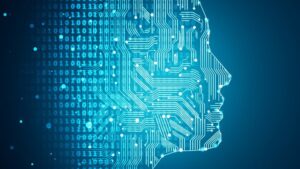Musk Wants to be a Trillionaire … Why?
Tuesday, November 11th, 2025By Bob Gaydos
If you’re a billionaire, why do you need to be a trillionaire?
This not-so-rhetorical question occurred to me the other day when I read that shareholders of Tesla had voted to give the company CEO Elon Musk a one trillion dollar bonus, salary, gift, whatever you wanna call it simply because he asked for it. In company shares.
This would make Musk, already the richest person on the planet, a million billion times richer I think. It’s hard to multiply all those zeros.
So I ask again, why? And, before I proceed any further, let me give due credit to singer Billie Eilish, all of 23 years old, who inspired this question when she had the presence of mind and maturity to ask a room full of very rich people, including some billionaires, “If you’re a billionaire, why are you a billionaire”?
Really. Why? Eilish, who already has a string of awards for such hits as “Bad Boy,” “Birds of a Feather” and others, with which I am also unfamiliar, asked the question as she accepted an award from WSJ Magazine.
But she didn’t just ask the question; she gave the reason behind it. As she addressed the celebrity-studded audience, she said: “We’re in a time right now where the world is really, really bad and really dark and people need empathy and help more than, kind of, ever, especially in our country. I’d say if you have money, it would be great to use it for good things, maybe give it to some people that need it.”
Umm, yeah. For the record, Ellish who has an estimated net worth of $50 million, also said she is donating $11.5 million of the proceeds from her Hit Me Hard and Soft tour to support organizations fighting for food equity, climate justice, reducing carbon pollution, and combatting the climate crisis.
So, great, now that I have sufficiently buried the lead, what about Elon Musk? Why does he need to be a trillionaire? Why does he even need to ask for $1 trillion? And why do people think he deserves it?
He wants to replace people with machines that will do all the work and thinking they used to do. He spent a couple of months in Donald Trump‘s Oval Office office trying to eliminate every possible job in the federal government, while collecting information on American citizens. He dismantled USAID, cutting off crucial food supplies to starving people. He seems intent on populating the world with as many mini-versions of himself by as many willing partners as possible. All white.
He seems utterly divorced from all the problems of his native Africa and he has been known to throw an occasional Nazi salute. Yet he has convinced millions that he is a genius and also a genius at making money for them. (Sound familiar?) This, even though cars are still not really driving themselves and he’s nowhere close to putting anyone on Mars, curing cancer or ending violence in the Middle East.
The big corporate stockholders in Tesla, perhaps feeling Musk already had too much power and money, voted against giving him the trillion dollar payday, but the retail shareholders felt otherwise.
They voted— 75 percent of them no less— to give Musk up to $1 trillion over 10 years if the company meets a list of benchmarks such as selling 1 million humanoid robots. Again, to do much of the work that those people who voted for the big payday for him now still do.
That presumably would include artificial intelligence writing columns like this informing humans what a wonderful life they have now that they have nothing to do. They won’t even have to worry about “those people“ taking their jobs from them. “Those people” will presumably just go about doing whatever “those people” do. And Musk, in addition to producing robots and mini-Musks, will do whatever trillionaires do. In that regard at least, he really can be a trailblazer.
Paradise will be delivered, overnight by Amazon, courtesy of greed and willing ignorance.
***
(PS: We’re told that Mark Zuckerberg, who was in the audience, did not put a like on Eilish’s comments.)





